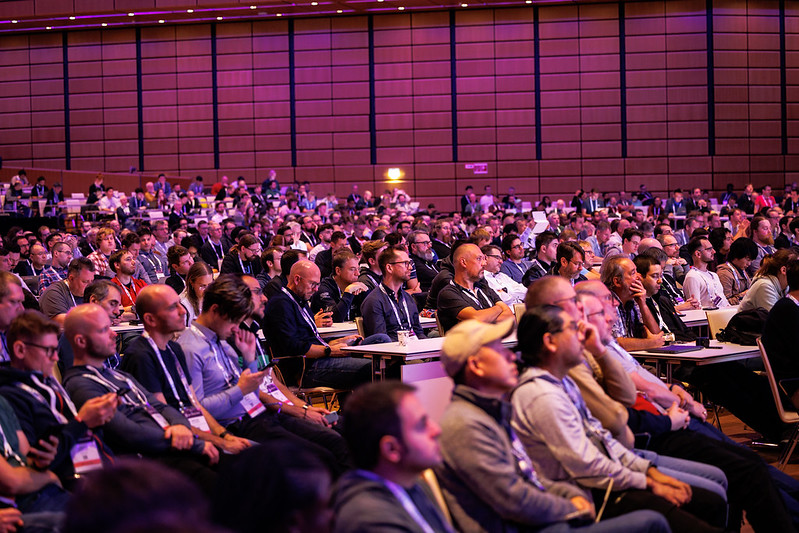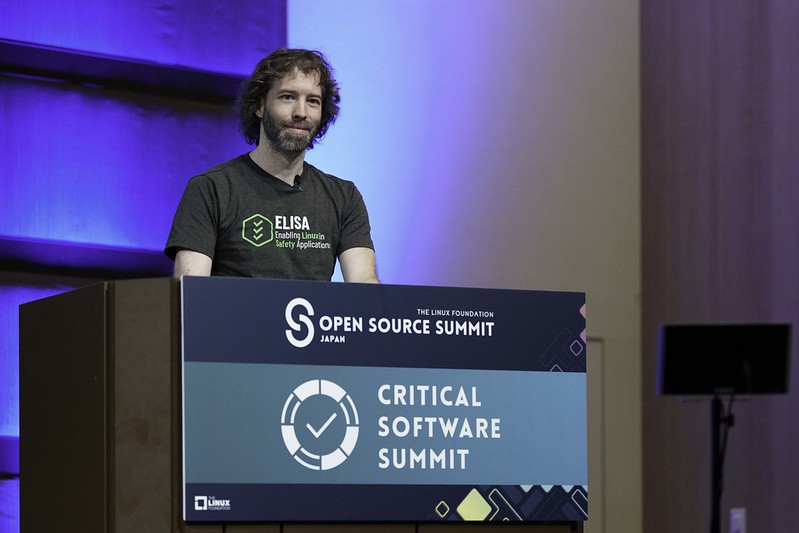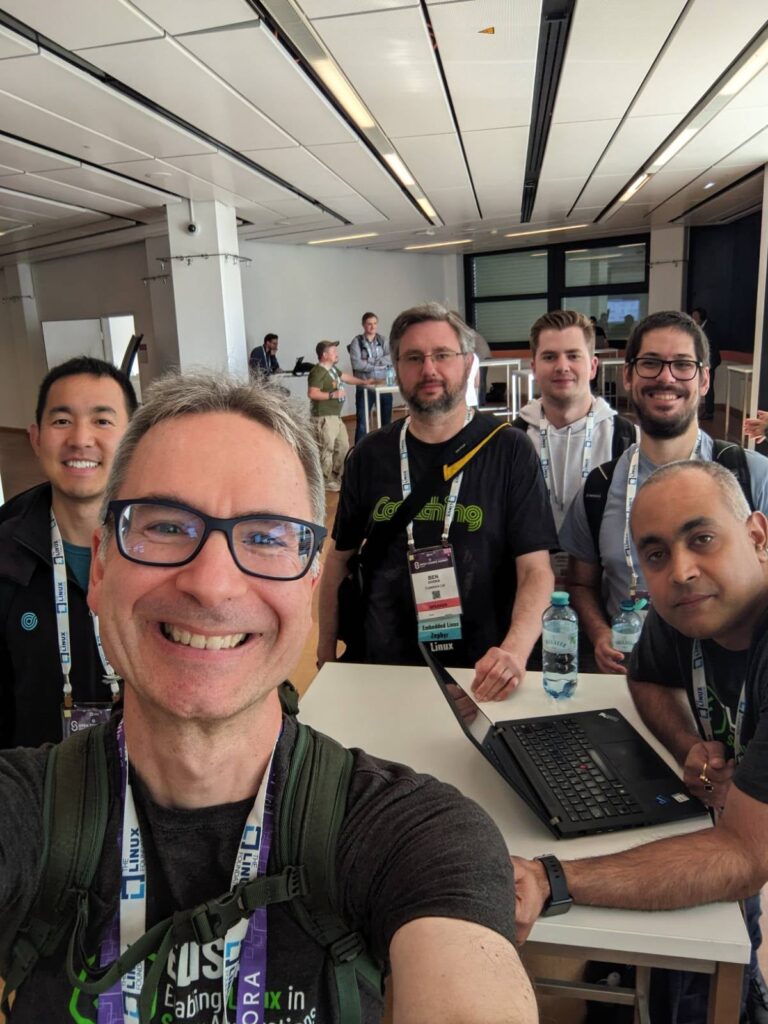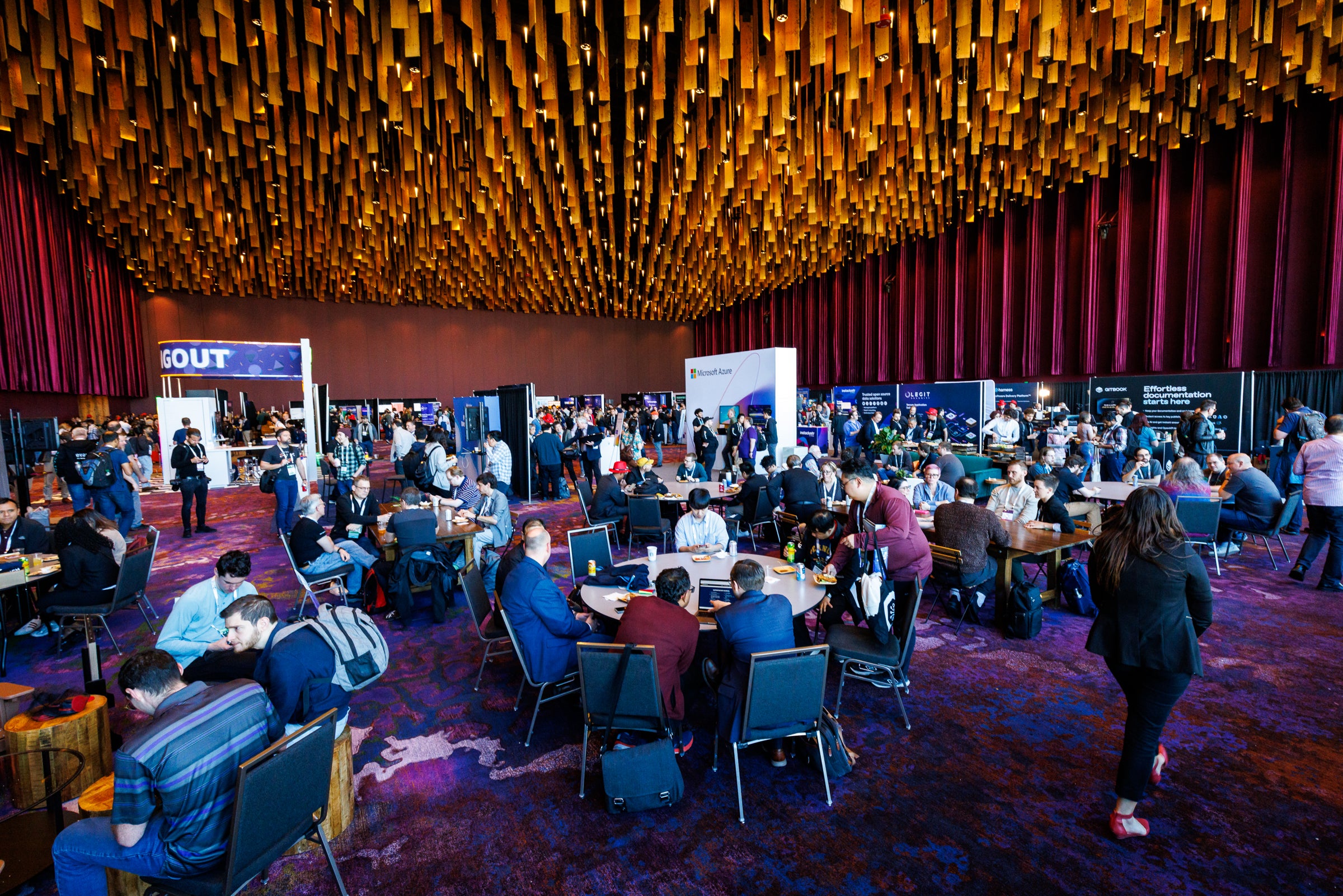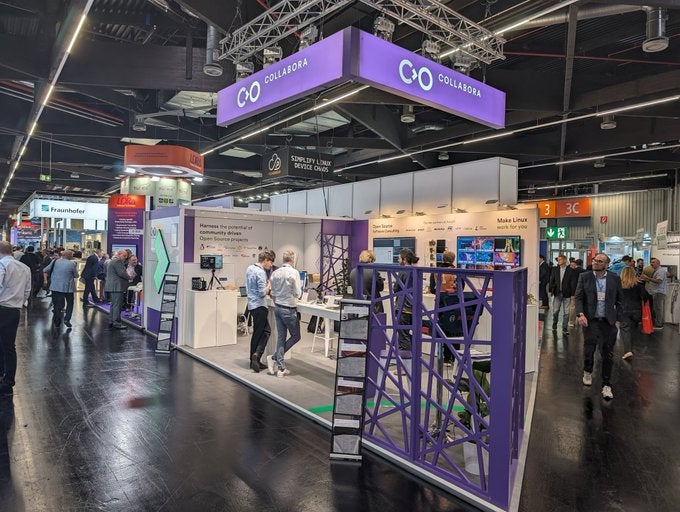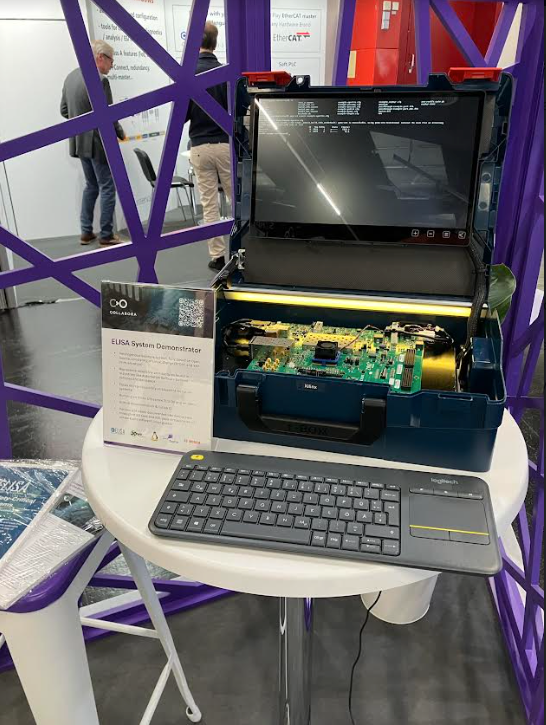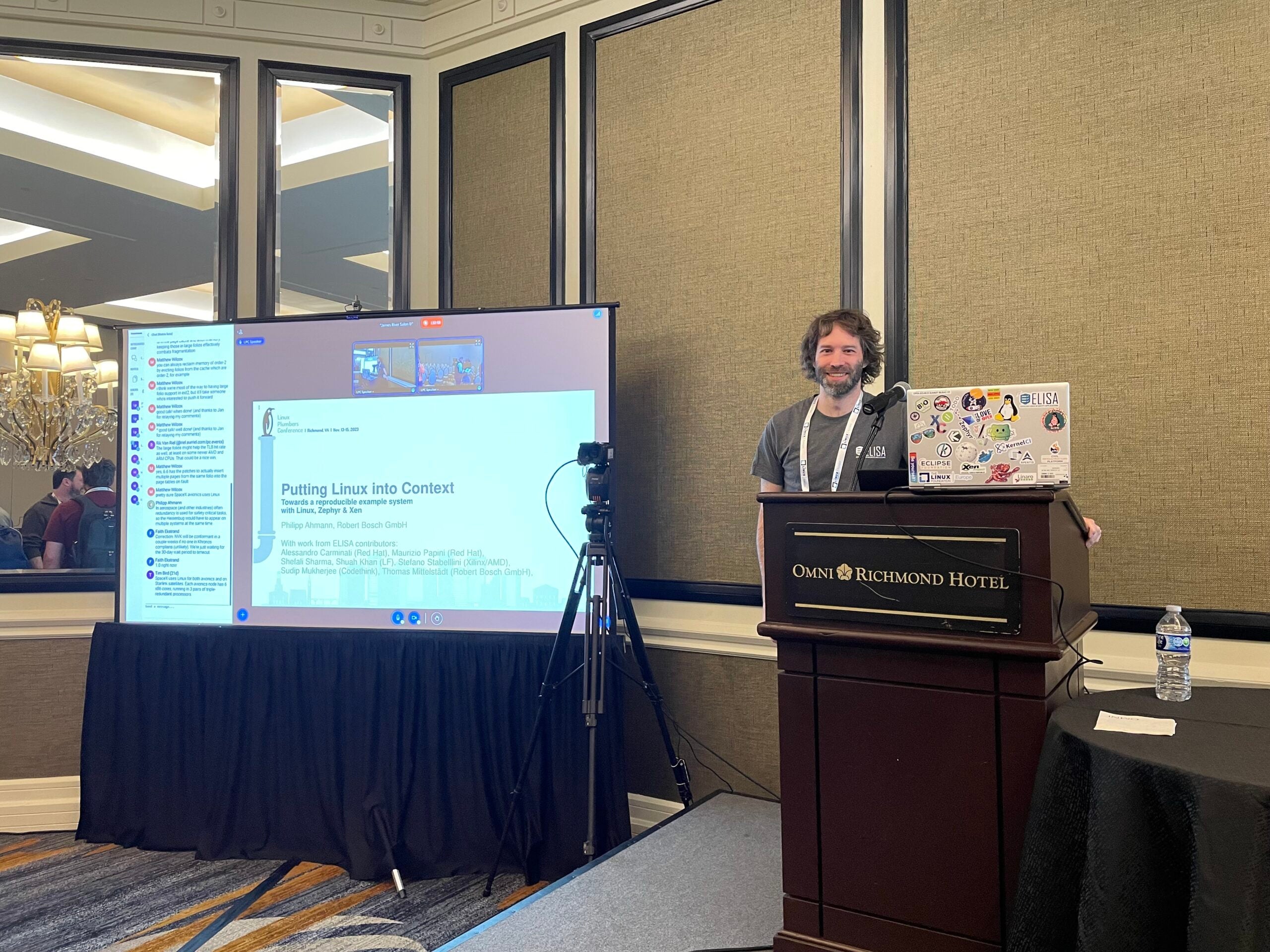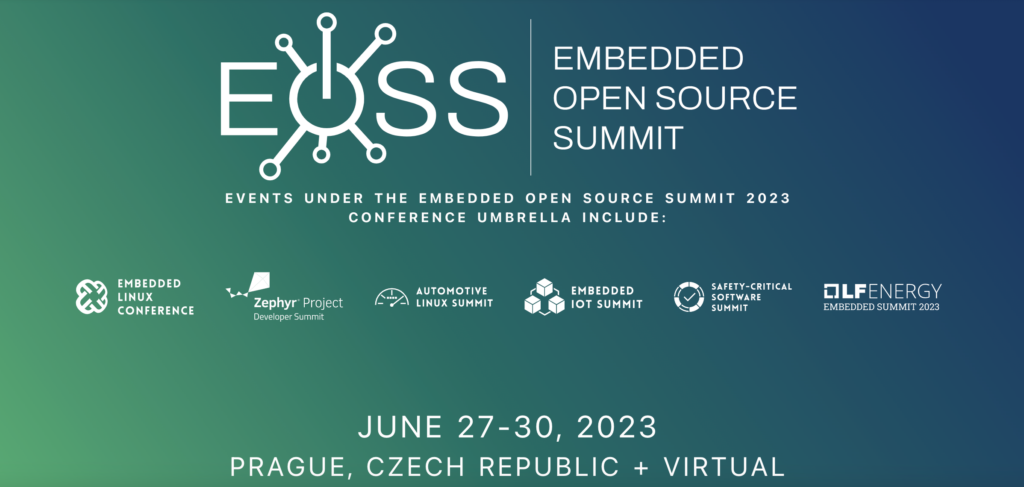Written by Ramon Roche, Dronecode Foundation General Manager and member of Space Grade Linux
Members and collaborators from the ELISA Project and the broader Linux Foundation community were excited to participate in FOSDEM 2025, joining thousands of open source enthusiasts in Brussels for a weekend dedicated to advancing open technology. For those who haven’t yet experienced FOSDEM, it’s difficult to put into words the vibrant, inclusive atmosphere of this registration-free event—it’s something you genuinely have to see and feel for yourself. Imagine developers buzzing between the historic buildings of the Université libre de Bruxelles, eagerly attending talks, sharing ideas, and forging connections over their shared passion for innovation. FOSDEM is more than just a conference; it’s a celebration of open-source collaboration and a testament to the power of community-driven technology.
“FOSDEM is more than just a conference—it’s a cornerstone of the open source world. From discovering new projects in various fields like open source scorecards and NGO-focused CRMs to engaging in critical discussions around the EU’s Cyber Resilience Act, FOSDEM offers unmatched opportunities for learning and collaboration. The hallway track, packed sessions, and the growing interest in AI and open hardware all underscore its role as a vital hub for innovation and community building. It’s where the open source ecosystem thrives, connects, and evolves.”
— Philipp Ahmann, Sr. OSS Community Manager at ETAS GmbH
Exhibits from Sponsors
One of the highlights of FOSDEM 2025 was the lively exhibit area, where attendees flocked to engage with some of the most influential projects and foundations in the open-source ecosystem. The halls were abuzz with energy, making it nearly impossible to walk through without getting swept up in the excitement! Zephyr RTOS had a standout presence among the many exhibits, drawing attention with its innovative real-time operating system solutions. Members of the ELISA community were also actively involved throughout the exhibits, connecting with attendees and sharing insights on safety-critical systems and open-source collaboration.

The FOSDEM community’s love for swag was on full display, with attendees proudly sporting T-shirts, stickers, and other goodies collected from various booths. A major crowd favorite was the Linux Foundation Europe booth, which attracted a steady stream of visitors with its impressive lineup of CNCF project merchandise and exclusive discounts on Linux Foundation training and certifications available only to FOSDEM attendees. The vibrant atmosphere and enthusiasm around the exhibits perfectly captured the spirit of innovation and community that defines FOSDEM.

Kate Stewart’s Zephyr Open Source Project Best Practices Over Time Presentation
Another highlight of FOSDEM 2025 was Kate Stewart’s talk titled Zephyr: Open Source Project Best Practices Over Time, where she shared insights into how Zephyr RTOS has evolved into a robust and widely adopted platform, now surpassing 100,000 commits in its main repository. Drawing on lessons from the Linux Kernel Community, she emphasized the importance of embedding best practices early on to ensure long-term sustainability and scalability. A key focus of her leadership has been security, which was integrated from the start rather than treated as an afterthought. With Zephyr advancing toward formal safety certification, Stewart’s vision continues to drive the project forward, solidifying its position as a trusted solution for embedded systems and safety-critical applications. Her meticulous attention to governance, security, and collaboration has been instrumental in taking Zephyr to new heights.
Software Bill of Materials (SBOM) devroom
The SBOM devroom at FOSDEM 2025 was a focal point for discussions on the growing importance of Software Bill of Materials (SBOM) in ensuring transparency and security across the open-source ecosystem. A standout session was Luigi Pellecchia’s talk on BASIL, an innovative open-source tool designed to simplify the creation and maintenance of traceability matrices for safety-critical applications. Pellecchia demonstrated how BASIL leverages the Software Package Data Exchange (SPDX) standard to integrate quality-related work items into SBOMs, enhancing consistency and reliability across complex toolchains. His presentation highlighted the critical role of SBOMs in fostering trust and compliance, making it clear that tools like BASIL are essential for modern software development workflows. The devroom’s sessions collectively underscored the value of SBOMs in building secure and sustainable software supply chains.
Embedded, Mobile, and Automotive devroom
The Embedded, Mobile, and Automotive devroom at FOSDEM 2025 was a hub of innovation, bringing together a vibrant community of developers and enthusiasts to explore the latest in open-source technologies. The program was packed with engaging talks, covering everything from CubeSat communication systems and general-purpose humanoid robotics with dora-rs to dual A/B update solutions for embedded Linux. Standout sessions included Thibault Poncelet’s deep dive into automotive communication systems with Reverse Engineering CAN Communication and Building ECUs Using Elixir and the BEAM, and Florian Limberger’s exploration of Bluetooth Low Energy applications in Developing BLE Host Applications with Zephyr. Attendees also got a closer look at the integration of MicroPython in embedded systems and enjoyed a lively update on the Zephyr RTOS during its dedicated roasting party. With a full house for nearly every session, the devroom highlighted the rapid advancements in embedded technologies and the critical role of open-source collaboration in shaping the future of the industry.
“FOSDEM is one of the most important open-source gatherings in the world, and this year was no exception,” said Walt Miner, AGL Community Manager at the Linux Foundation, devroom co-chair. “I came to host the Embedded, Mobile, and Automotive devroom, as well as the Automotive BoF, but it’s also the best place to connect with a wide variety of experts across countless projects. What makes FOSDEM so special is its diversity—it’s not tied to a single project or technology, and every year brings new devrooms and discoveries. This year, I was excited to learn more about OpenPilot and meet some of the people using it.”
Miner continued, “In the Embedded, Mobile, and Automotive devroom, Zephyr was a recurring theme, with so many great talks that we could easily justify a dedicated Zephyr devroom next year. The devroom was a huge success—our 210-seat room was packed for every session, and we had three times more talk submissions than we could accommodate. It’s inspiring to see such enthusiasm and expertise in the community, and I’m already looking forward to next year!”
“Expect the unexpected. At FOSDEM, you have the opportunity to see new topics and trends.”
– Jan-Simon Moeller
Featured Talks you should check out:
BASIL an open source tool that supports requirements traceability with design sBOM
Zephyr: Open Source Project Best Practices Over Time
